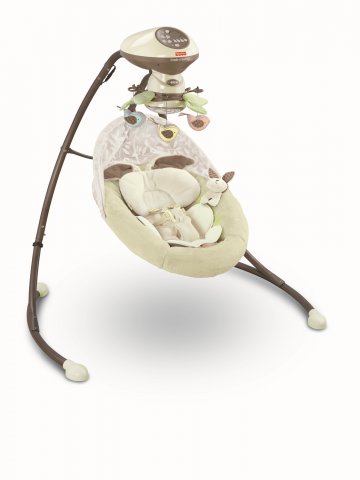On this page
Use products for their intended purpose
It is important to use baby products only for their designed and intended purpose. Always use baby products according to their instructions.
Incorrect use of a product, or using a product for a purpose it wasn’t intended for, can be unsafe for baby.
Many baby and toddler products have mandatory standards that describe how the products must be designed, used and labelled. These standards make sure that baby is safe if the product is used as intended.
Products that are designed and sold for more than one purpose need to meet the mandatory standards for every use.
Visit Sleep bub safe to find a video and information to support Aboriginal and Torres Strait Islander families and carers with helping bub sleep safe.
Products designed for sleep
Products that are safest for baby to sleep in are:
Create a safe sleep environment
- Only put your baby to sleep in a safe environment.
- Always put baby on their back on a flat, firm and level surface with their head and face uncovered.
- Remove any pillows, soft toys and sleep comforters.
- Make sure you follow the Red Nose safe sleep advice. This includes:
Inclined products that are not designed for sleep
Babies are at higher risk of sudden death from suffocation or strangulation, if they sleep in inclined or propped positions.
Based on reports by Child Death Review and prevention groups, between 2001 and 2021, 151 infants in Australia died in inclined products such as rockers, bouncers, and on items that were propped.
Many products for moving baby, playing with baby and soothing baby have inclined surfaces. They are not designed or recommended for sleep.
Products to move baby:
- car seats
- carriers, wraps and slings
- prams and strollers.
Products to play with baby:
- bouncers, rockers and swings.
Products to soothe baby:
- baby bean bags
- hammocks
- recliners.
Only use these products for their intended purpose. Look for instructions about safe use of these products.
While baby is using these products
We don’t recommend letting your baby sleep in these products as they are unsafe for sleeping in.
When your baby is using these products:
- check your baby frequently
- don’t leave them for long periods or unsupervised
- if baby falls asleep in the product, remove them from the product and put them into a safe sleep environment.
Products that are unsafe for sleep
Products that do not provide flat, firm and level surfaces, and put baby’s head or body in a different position, are unsafe for sleeping.
Products that are not safe for sleep, because they can put baby in unsafe positions or can restrict their breathing, include:
- anti-roll pillows
- nests or loungers
- sleep comforters
- sleep positioners
- soft toys
- weighted blankets, weighted sleep sacks and weighted swaddles.
We do not recommend buying or using these product for your baby’s sleep environment.
Risks and injuries from these products
Babies are at risk of injury and sudden death if they sleep in products with:
- an incline
- a curved backrest
- soft and padded surfaces
- pillows that lift the head
- weighted elements, restraints or straps.
Sudden death from suffocation or strangulation can occur if baby:
- drops their chin onto their chest, which narrows airways and restricts breathing
- rolls into a position or into soft products that block or cover their airways
- cannot lift their face or roll over freely because the position or soft products limits chest and tummy movement
- has their face covered by soft toys, sleep comforters, pillows, bumpers or blankets.
New product safety rules
New mandatory standards for infant sleep products and inclined non-sleep products were introduced on 18 July 2024. Businesses have 18 months to meet the new rules.
The new standards aim to reduce the risk of death and injury from products that babies do or may fall asleep in.












